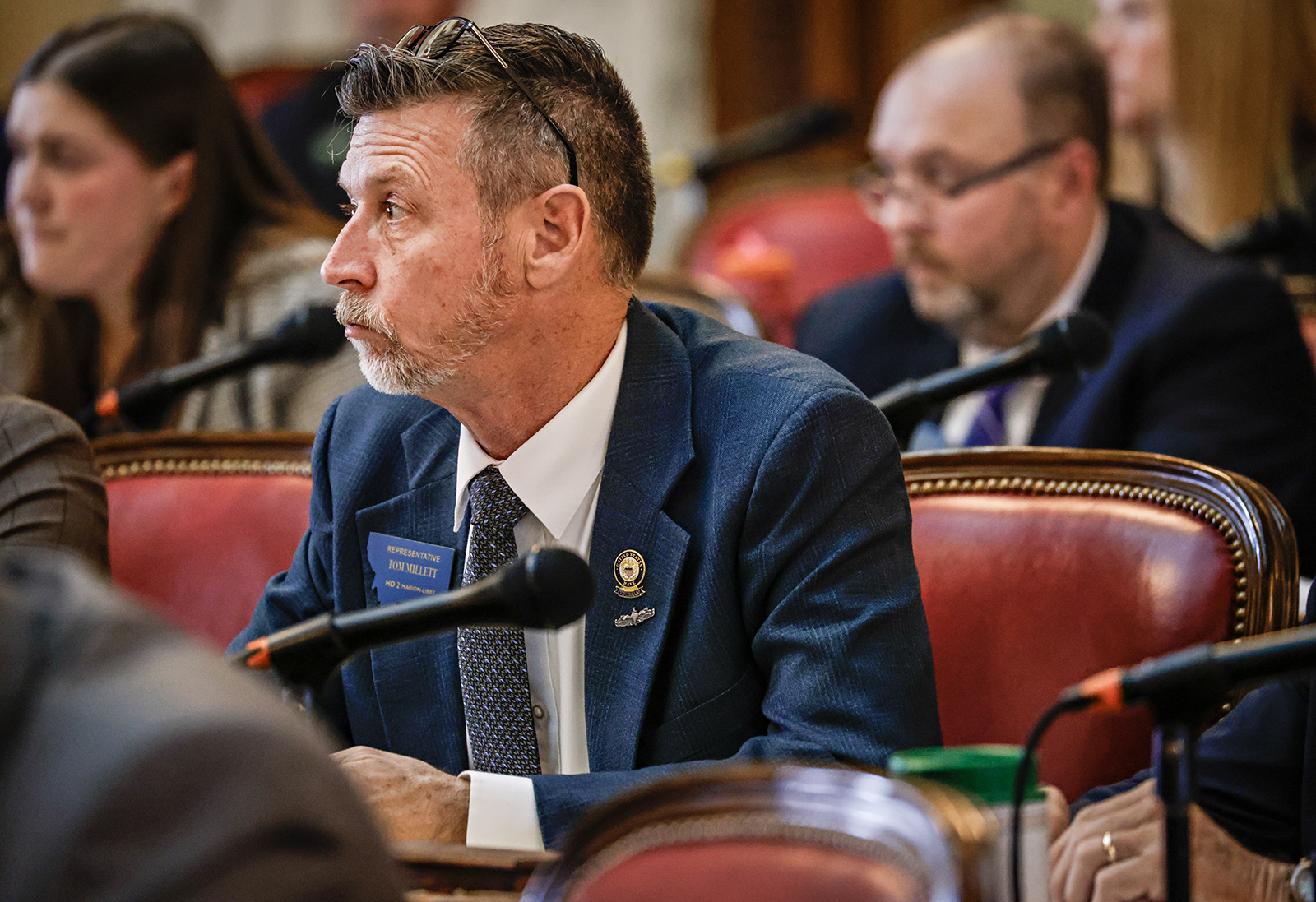Montana Joins Growing List of States with Codified Protection Against Frivolous Lawsuits
‘Strategic Lawsuits Against Public Participation’ aim to bury defendants in legal fees over illegitimate cause for legal action
By Zeke Lloyd, Montana Free Press
A bill aimed at strengthening Montanans’ First Amendment rights became law just days before World Press Freedom Day.
Earlier this week Gov. Greg Gianforte signed House Bill 292, which strengthens the public’s defenses against a legal maneuver known as a “strategic lawsuit against public participation.” SLAPPs use the legal process and associated costs to intimidate or suppress speech a plaintiff doesn’t like.
“A SLAPP may come in the form of defamation, invasion of privacy, nuisance or other claim, but its real goal is to entangle the defendant in expensive litigation and stifle their ability to engage in Constitutionally protected activities,” bill sponsor Rep. Tom Millett, R-Marion, said while introducing the bill before the House Judiciary committee in February.
HB 292 allows for the early filing of a motion to dismiss a SLAPP and pauses all legal proceedings, including the discovery process, while the court considers that motion on an expedited timeline. The law also requires that a defendant be awarded attorneys fees from plaintiffs if a SLAPP is dismissed.
Millett said Idaho’s anti-SLAPP bill, which became law in late March, served as the inspiration for HB 292.
“I looked at the bill and I thought, ‘Wow, that is a really good bill. That is something that Montana should really embrace,’” Millett said during a Senate Judiciary Committee hearing in late March.
Renee Griffin, a staff attorney at Reporters Committee for Freedom of the Press, said in an interview with Montana Free Press that nearly three-quarters of legislatures around the country have adopted some form of anti-SLAPP legislation. RCFP provides pro bono legal representation and other legal resources to journalists.
“It’s a pattern we’re very excited to see,” said Griffin.
Griffin applauded Montana for “going from no anti-SLAPP law to this pretty robust version of an anti-SLAPP law.” Griffin said the legislation not only protects journalists after a story is published, but also increases an outlet’s “willingness to fully report out and investigate that story.”
SLAPPs have been used to stifle free expression both inside the United States and abroad. In the United States, media conglomerates sometimes face SLAPPs. In 2017, coal tycoon Robert Murray sued HBO and John Oliver’s “Last Week Tonight” for defamation over statements the show made about a mining disaster. While Murray eventually lost, the suit cost the defendants more than $200,000 in legal fees.
Griffin says the cases don’t always hit organizations that can afford it.
“The financial concerns that come with an expensive litigation weigh even more heavily on the local small newsrooms that do a lot of important on-the-ground coverage of towns and other places in Montana,” Griffin said.
Jay Adkisson, a Nevada-based attorney who said he helped draft and organize the language now circulating legislatures around the country, told the House Judiciary Committee during his February testimony that he’s personally faced two SLAPPs.
The Montana Trial Lawyers Association, American Civil Liberties Union, Montana Motion Picture Association and Uniform Law Commission also spoke in support of the bill at its February hearing in the House Judiciary Committee. No opponents spoke on the bill during its House or Senate hearings.
The bill passed out of both chambers almost unanimously. Only two lawmakers voted against the bill during its legislative journey.
Jim Strauss, communications and development director of the Montana Newspaper Association, painted the bill as a common sense measure for the modern media landscape.
“This bill will help deter frivolous lawsuits that are brought with the sole purpose of limiting public participation, limiting public comment and limiting media coverage,” Strauss said.
This story originally appeared in the Montana Free Press, which can be found online at montanafreepress.org.